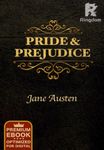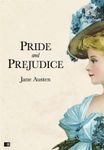59 books
-
1. Austen, Jane: The Complete Novels (Annotated)
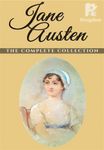
Austen, Jane: The Complete Novels includes all material known to be penned by Austen, from her earliest childhood effort (aptly titled Scraps) to the masterworks we all know and love - Pride and Prejudice, Sense and Sensibility, Mansfield Park, Persuasion et al. A Collection of Letters by Jane Austen. A Letter from a Young Lady by Jane Austen. A Tale by Jane Austen. A Tour Through Wales by Jane Austen. Emma by Jane Austen. The Female Philosopher by Jane Austen. The First Act of a Comedy by Jane Austen. The History of England by Jane Austen. Lady Susan by Jane Austen. Lesley Castle: An Unfinished Novel in Letters by Jane Austen. Love and Friendship by Jane Austen. Mansfield Park by Jane Austen. Northanger Abbey by Jane Austen. Persuasion by Jane Austen. Pride and Prejudice by Jane Austen. Scraps by Jane Austen. Sense and Sensibility by Jane Austen.
-
2. Pride and Prejudice

Love is in the air when five sisters discover that a wealthy and eligible bachelor is suddenly within reach. But it is his friend, the haughty Mr. Darcy, who becomes smitten. Unfortunately for him, the object of his affection is not so easily swayed. One of the most popular characters in English literature, Elizabeth Bennet is intelligent, witty, well-spoken and ahead of her time. If the terrible rumors about Mr. Darcy are true, he doesn’t stand a chance. Yet not all gossip is to be believed when marriage, money, and reputations are on the line. Will Elizabeth and Mr. Darcy circumvent her haste, his ego, and society’s expectations to find love? Written more than two centuries ago, Jane Austen’s enduring story of manners, family, and love continues to delight new generations of readers.
-
3. Jane Austen Six Pack (Illustrated)
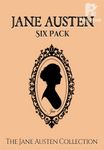
Jane Austen (16 December 1775 - 18 July 1817) was an English novelist whose works of romantic fiction, set among the landed gentry, earned her a place as one of the most widely read writers in English literature. Her realism, biting irony and social commentary as well as her acclaimed plots have made her six big novels eternal favorites across the planet wherever English is read. From 1811 until 1816, with the publication of Sense and Sensibility, Pride and Prejudice, Mansfield Park and Emma, Jane Austen achieved success as a published writer. Her two additional novels, Northanger Abbey and Persuasion, were both published posthumously in 1818. Jane Austen Six Pack includes all six novels and several image galleries showcasing Austen portraits, first edition covers and original illustrations. Sense and Sensibility by Jane Austen. Pride and Prejudice by Jane Austen. Mansfield Park by Jane Austen. Emma by Jane Austen. Northanger Abbey by Jane Austen. Persuasion by Jane Austen.
-
4. Pride And Prejudice
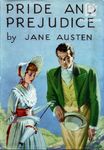
Pride and Prejudice is a humorous story of love and life among English gentility during the Georgian era. Mr Bennet is an English gentleman living in Hartfordshire with his overbearing wife. The Bennets 5 daughters; the beautiful Jane, the clever Elizabeth, the bookish Mary, the immature Kitty and the wild Lydia.
-
6. Pride And Prejudice
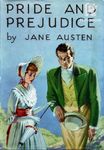
Pride and Prejudice is a humorous story of love and life among English gentility during the Georgian era. Mr Bennet is an English gentleman living in Hartfordshire with his overbearing wife. The Bennets 5 daughters; the beautiful Jane, the clever Elizabeth, the bookish Mary, the immature Kitty and the wild Lydia.
-
7. Orgueil et Préjugés
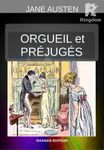
Orgueil et Préjugés (Pride and Prejudice) est un roman de la femme de lettres anglaise Jane Austen paru en 1813. Dans son essai de 1954, Ten Novels and Their Authors, Somerset Maugham le cite en seconde position parmi les dix romans qu’il considérait comme les plus grands. Présentation | À Longbourn, petit bourg du Hertfordshire, sous le règne du roi George III, Mrs Bennet est déterminée à marier ses cinq filles afin d’assurer leur avenir, compromis par certaines dispositions testamentaires. Lorsqu’un riche jeune homme, Mr Bingley, loue Netherfield, un domaine proche, elle espère vivement qu’une de ses filles saura lui plaire assez pour qu’il l’épouse. Malheureusement, il est accompagné de ses deux sœurs, Caroline et Louisa, plutôt imbues d’elles-mêmes, et d’un ami très proche, Mr Darcy, jeune homme immensément riche, mais très dédaigneux et méprisant envers la société locale…| |Source Wikipédia| Extrait | C’est une vérité presqu’incontestable qu’un jeune homme possesseur d’une grande fortune, doit avoir besoin d’une épouse. Bien que les sentiments et les goûts d’un tel homme ne soient pas connus ; aussitôt qu’il vient se fixer dans une province, les familles du voisinage le regardent comme un bien qui doit dans peu appartenir à l’une ou l’autre de leurs filles. « Mon cher M. Bennet, avez-vous appris que le château de Netherfield est enfin loué ? » M. Bennet répondit que non. » – Je puis vous assurer qu’on l’a loué, reprit sa femme, car Mme. Long sort d’ici, et m’a dit tout ce qu’il en était. » M. Bennet ne fit point de réponse. « — Ne désirez-vous pas savoir, dit sa femme très-vivement, quel est l’homme qui doit devenir notre voisin ? » « — Vous désirez me le dire, et je veux bien vous écouter. » Cet encouragement fut suffisant. « — Eh bien ! mon cher, sachez qu’un jeune homme fort riche vient habiter Netherfield ; il y passa lundi dernier en voiture à quatre chevaux, il vit la maison, elle lui plut ; il parla sur-le-champ à M. Morris, et doit en prendre possession à la St. Michel. » – Comment le nommez-vous ? » – Bingley. » – Est-il marié ? » – Non bien certainement. Un jeune homme très-riche, quatre ou cinq mille livres sterlings de rente ; quel bonheur pour nos filles ! » – Comment donc, qu’est-ce que cela peut leur faire ? » – Mon cher M. Bennet, comme vous êtes ennuyeux ! ne voyez-vous pas qu’il est très-probable qu’il en épousera une. » – Est-ce là son intention en venant demeurer ici ? » – Son intention ! Peut-on dire une telle sottise ; mais il est très-possible qu’il devienne amoureux d’une de nos filles ; ainsi il faut que vous lui fassiez une visite aussitôt après son arrivée...|
-
8. Jane Austen Best Novels
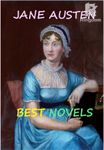
Jane Austen (16 December 1775 – 18 July 1817) was an English novelist known primarily for her six major novels, which interpret, critique and comment upon the British landed gentry at the end of the 18th century. In this book, we have collected five of her best novels: Emma, Mansfield Park, Persuasion, Pride and prejudice, Sense and sensibility. A well-structured, easy-to-read book, suitable for any e-reader, tablet or computer. The reader will go from one novel to another one as quick as possible.
-
11. Pride and Prejudice
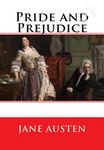
Mrs. Bennet has but one aim in life: to find a good match for each of her five daughters. Mr. Bennet, a mild and indolent man given to witty cynicisms, refuses to take this vulgar project seriously; he ridicules his wife instead of giving her support in her schemes. One of the daughters, Elizabeth, becomes prejudiced against her future suitor, Darcy, because of his arrogance and his uncalled-for interference with his friend Bingley’s courtship of her sister Jane. In interfering with Jane and Bingley, Darcy is influence by Mrs. Bennet’s undisguised husband-hunt and her impropriety in general; he mistakenly believes that Jane is only seeking an advantageous match and that her feelings are not sincere. In spite of his disapproval of the Bennet family. Darcy cannot keep himself from falling in love with Elizabeth, and he proposes to her. The tone of the proposal (it is evident that his love for Elizabeth is a blow to his pride) and her own prejudice cause Elizabeth to coldly reject him...
-
12. Pride and Prejudice

Follow the young protagonist Elizabeth, in this romantic novel set in 19th century Hertfordshire, as she learns from her errors and figures out the importance of love and marriage and in a society where none of her Father's daughters may inherit his fortune without the assistance of a marrying a man.
-
13. Persuasion
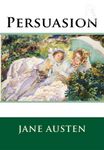
Persuasion follows the romance of Anne Elliot and naval officer Frederick Wentworth. They were happily engaged until Anne’s friend, Lady Russell, persuaded her that Frederick was “unworthy.” Now, eight years later, Frederick returns, a wealthy captain in the navy, while Anne’s family teeters on the edge of bankruptcy. They still love each other, but their past mistakes threaten to keep them apart.
-
14. Emma
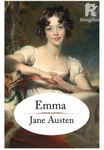
Emma is a comic novel by Jane Austen, first published in December 1815, about the perils of misconstrued romance. The main character, Emma Woodhouse, is described in the opening paragraph as "handsome, clever, and rich" but is also rather spoiled. Prior to starting the novel, Austen wrote, "I am going to take a heroine whom no-one but myself will much like."
-
15. Sense and Sensibility

The family of Dashwood had long been settled in Sussex. Their estate was large, and their residence was at Norland Park, in the centre of their property, where, for many generations, they had lived in so respectable a manner as to engage the general good opinion of their surrounding acquaintance. The late owner of this estate was a single man, who lived to a very advanced age, and who for many years of his life, had a constant companion and housekeeper in his sister. But her death, which happened ten years before his own, produced a great alteration in his home; for to supply her loss, he invited and received into his house the family of his nephew Mr. Henry Dashwood, the legal inheritor of the Norland estate, and the person to whom he intended to bequeath it. In the society of his nephew and niece, and their children, the old Gentleman's days were comfortably spent. His attachment to them all increased. The constant attention of Mr. and Mrs. Henry Dashwood to his wishes, which proceeded not merely from interest, but from goodness of heart, gave him every degree of solid comfort which his age could receive; and the cheerfulness of the children added a relish to his existence. By a former marriage, Mr. Henry Dashwood had one son: by his present lady, three daughters. The son, a steady respectable young man, was amply provided for by the fortune of his mother, which had been large, and half of which devolved on him on his coming of age. By his own marriage, likewise, which happened soon afterwards, he added to his wealth. To him therefore the succession to the Norland estate was not so really important as to his sisters; for their fortune, independent of what might arise to them from their father's inheriting that property, could be but small. Their mother had nothing, and their father only seven thousand pounds in his own disposal; for the remaining moiety of his first wife's fortune was also secured to her child, and he had only a life-interest in it.
-
16. Sense and Sensibility
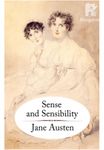
Elinor and Marianne are two daughters of Mr. Dashwood by his second wife. They have a younger sister, Margaret, and an older half-brother named John. When their father dies, the family estate passes to John and the Dashwood women are left in reduced circumstances. Fortunately, a distant relative offers to rent the women a cottage on his property. The novel follows the Dashwood sisters to their new home, where they experience both romance and heartbreak.
-
17. Emma

SOLIDARIETA" DIGITALE : tutto il nostro catalogo in promozione! EDIZIONE REVISIONATA 11/02/2020. Edizione migliorata con IMMAGINI originali delle prime edizioni. Pubblicato anonimamente nel 1815, il romanzo scritto da Jane Austen racconta la storia di Emma Woodhouse, una donna bella, ricca e intelligente. La giovane e affascinante ereditiera è il primo personaggio di Jane Austen a non avere problemi economici. Vanitosa ed egocentrica, non le interessa l’amore romantico e ritiene quindi di non doversi sposare, sebbene le consuetudini della società del tempo vedano nel matrimonio l’unica ragione di vita di una donna. Tuttavia Emma si diverte tantissimo nel cercare di combinare matrimoni tra amici e conoscenti, fino a che una serie di fraintendimenti, causati dalla cecità della protagonista di fronte ai suoi sentimenti e a quelli degli altri, porta il racconto a prendere una piega quasi da “commedia degli equivoci”. Jane Austen, scrivendo il romanzo, diceva: “Sto lavorando a un’eroina che non piacerà a nessuno, se non a me”, poiché Emma, così poco equilibrata, snob e viziata, è completamente diversa dagli altri personaggi femminili presenti nelle sue opere. Ma, nonostante i suoi difetti, la protagonista di questo volume riesce a catturare immediatamente la simpatia dei lettori, che perdonano i suoi errori e parteggiano per lei. Alla fine, Emma è costretta a prendere coscienza della realtà, in quella che è una satira divertente e spietata non solo dei costumi della società ottocentesca, ma anche della vanità e dell’egoismo umani.
-
18. Pride and Prejudice
Austen's powers of subtle discrimination and shrewd perceptiveness is revealed in Pride and Prejudice; she is able to convey such a complex message using a simple, yet witty, style. The main subject in the novel is stated in the first sentence of the novel: "It is a truth universally acknowledged, that a single man in possession of a good fortune, must be in want of a wife." In this statement, Austen has cleverly done three things: she has declared that the main subject of the novel will be courtship and marriage, she has established the humorous tone of the novel by taking a simple subject to elaborate and to speak intelligently of, and she has prepared the reader for a chase in the novel of either a husband in search of a wife, or a women in pursuit of a husband. The first line also defines Austen's book as a piece of literature that connects itself to the 18th century period. Pride and Prejudice is 18th century because of the emphasis on man in his social environment rather than in his individual conditions. The use of satire and wit, a common form of 18th century literature, also contributes to label the book as 18th century. However, because Austen had allowed personal feelings of the characters to be expressed in her work, she can also be classified as Romantic. In the figure of Elizabeth, Austen shows passion attempting to find a valid mode of existence in society. Passion and reason also comes together in the novel to show that they are complementary of marriage. There are seven different marriages presented in the novel. Excluding the Gardiner and the Lucas, the remaining five marriages contrasts each other to reveal Austen's opinions and thoughts on the subject of marriage. The marriage between Darcy and Elizabeth reveals the characteristics that constitute a successful marriage. One of these characteristics is that the feeling cannot be brought on by appearances, and must gradually develop between the two people as they get to know one another. In the beginning, Elizabeth and Darcy were distant from each other because of their prejudice. The series of events which they both experienced gave them the opportunity to understand one another and the time to reconcile their feelings for each other. Thus, their mutual understanding is the foundation of their relationship and will lead them to a peaceful and lasting marriage. This relationship between Elizabeth and Darcy reveals the importance of getting to know one's partner before marrying. The marriage between Jane Bennet and Bingley is also an example of successful marriage. Austen, through Elizabeth, expresses her opinion of this in the novel: "....really believed all his [Bingley] expectations of felicity, to be rationally founded, because they had for basis the excellent understanding, and super-excellent disposition of Jane, and a general similarity of feeling and taste between her and himself." (Chapter 55) However, unlike Darcy and Elizabeth, there is a flaw in their relationship. The flaw is that both characters are too gullible and too good-hearted to ever act strongly against external forces that may attempt to separate them: "You [Jane and Bingley] are each of you so complying, that nothing will ever be resolved on; so easy, that every servant will cheat you; and so generous, that you will always exceed your income." (Chapter 55) Obviously, Lydia and Wickham's marriage is an example of a bad marriage. Their marriage was based on appearances, good looks, and youthful vivacity. Once these qualities can no longer be seen by each other, the once strong relationship will slowly fade away. As in the novel, Lydia and Wickham's marriage gradually disintegrates; Lydia becomes a regular visitor at her two elder sister's home when "her husband was gone to enjoy himself in London or Bath." Through their relationship, Austen shows that hasty marriage based on superficial qualities quickly cools and leads to unhappiness. Although little is told of how Mr. Bennet and Mrs. Bennet got together, it can be inferred by their conversions that their relationship was similar to that of Lydia and Wickham--Mr. Bennet had married a woman he found sexually attractive without realizing she was an unintelligent woman. Mrs. Bennet's favoritism towards Lydia and her comments on how she was once as energetic as Lydia reveals this similarity. Mr. Bennet's comment on Wickham being his favorite son-in-law reinforces this parallelism. The effect of the relationships was that Mr. Bennet would isolate himself from his family; he found refuge in his library or in mocking his wife. Mr. Bennet's self-realization at the end of the novel in which he discovers that his lack of attention towards his family had led his family to develop the way they are, was too late to save his family. He is Austen's example of a weak father. In these two latter relationships, Austen shows that it is necessary to use good judgement to select a spouse, otherwise the two people will lose respect for each other. The last example of a marriage is of a different nature than the ones mentioned above. The marriage between Mr. Collins and Charlotte is based on economics rather than on love or appearance. It was a common practice during Austen's time for women to marry a husband to save herself from spinsterhood or to gain financial security. In Pride and Prejudice, Austen dramatizes gender inequality and shows that women who submit themselves to this type of marriage will have to suffer in tormenting silence as Charlotte does: "When Mr. Collins said any thing of which his wife might reasonably be ashamed, which certainly was not unseldom, she [Elizabeth] would involuntarily turned her eye on Charlotte. Once or twice she could discern a faint blush; but in general Charlotte wisely did not hear." (Chapter 28) These five marriages contribute to the theme that a happy and strong marriage takes time to build and must be based on mutual feeling, understanding, and respect. Hasty marriages acting on impulse, and based on superficial qualities will not survive and will lead to inevitable unhappiness. In Pride and Prejudice, Austen has denounced the elements of marriage and society that she found distasteful. These are the conclusions of her observation of the people in her world. However in her writing, Jane has also reflected her own enjoyment in life among these people with and without their faults. What does Ms. Austen try to tell me? That pride and prejudice are bad habits that interfere with personal relationships? Yes, but that is not new. Plenty of warnings against these social evils can be found in the world's great and small religious teachings. Ms. Austin deftly employs some of our shortcomings to give me a sketch of some of English society of her time without moralizing. Ask me what I think makes this work so enduring and I will answer: "it is so entertaining". I am certain that Ms. Austin wants her readers to experience a broad range of genuine emotions and she has succeeded with me. I can imagine the "oh no!" of her first female readers when they found that Lydia Bennett had eloped with Mr. Wickham. There are numerous scenes in the novel which we would name "situation comedy" today. If these were turned into TV series the producers would lard them with artificial laughter because Ms. Austen wanted her readers to snicker if not laugh often. It begins on page 1 of the novel when Mr. Bennett asks the immortal question whether Mr. Bingley has rented his estate expressly to hook one of the Bennett girls. Allow me a comment on the name Darcy which is of French origin and means that this old aristocratic family came from the town of Arcy (stress on the last syllable). We know how that family came to England. When William the Conqueror crossed the English Channel there was a well-known D'Arcy in his retinue. That Darcy remained in England.--Submitted by Dieter Heymann. Pride and prejudice have existed in the catalogue of human behaviour patterns from time immemorial. They are the two elements that Jane Austen chose to write her story around. Although a periodic tale, Pride and Prejudice is timeless in its core content. Jane Austen compiled a historical diary of life and times in the English middle classes, based around the Regency period that stretched on until the year 1830 or so. Whilst she wrote of an everyday lifestyle she was herself experiencing to some degree, she added threads of romance, fantasy and intrigue that belied her position of a woman who never married and spoke but once of any romantic encounters in her own life, yet portrays all the elements of classic romantic fiction without ever descending to sugar-sweet coyness or overt morality. Pride and Prejudice has a central love story in the making, rather than the telling, and one that only really begins at the book's end. It is an enjoyable journey through a world of coach-trips and candlelight and needs nothing more than the magic of the author's pen to weave it all together into an enjoyable and intriguing read that appeals to everyone. The characters are memorable not from excess heroism or exceptional personality, but from those who range from idiocy and meanness of spirit to pillars of respectability and virtue. Without a single one of the protagonists deemed unnecessary to the tale, their characters draw on a whole range of the readers interests, evoking every feeling in the spectrum of human emotions. Jane Austen rarely describes the physical attributes of her characters in any depth, perhaps preferring to let the readers use their imaginations and form their own opinions. This regardless, it is almost impossible to read the book without being left with the feeling of knowing each and every one of them with some intimacy. Two hundred years after it first graced the bookshelves of its readers, Pride and Prejudice lives on as strongly as ever.--Submitted by Jim Morris
-
20. Persuasion
(1817) Persuasion is Jane Austen* last completed novel, was published posthumously in 1817. By some it is considered her best work. Despite its subject: Anne Elliot who broke off the engagement with Frederick Wentworth 8 years before the book starts, taking the advice of her very good friend Lady Russel, the novel is not depressing, but rather uplifting. Her family, vain as they are, need to rent out their mansion to someone, and who should that someone be but Frederick (who in the meantime becomes Captain) Wentworth* sister and brother-in-law Admiral and Mrs Croft? A lovely couple of loving people. With a fortune of 25, OOO, Captain Wentworth is in search of a wife and is thrown in the way of Anne again. But, he has grown indifferent to her and seems rather to prefer the company of Anne* cousins-in-law: Louisa and Henrietta Musgrove. After a severe accident and a total surprise, the two meet again in Bath, where Anne* family has moved. Captain Wentworth does not seem indifferent anymore, but what is to happen when Anne* cousin Mr William Elliot seems to have his eyes fixed on her and everyone in Bath seems to be convinced that the two will marry soon? Fortunately, there is an old school friend Mrs Smith who will help Anne out. The novel ends in a comparison of attachment between man and woman which will cause a sublime ****. The sparkling satire from before results in the soft pop of a cork that opens a sparkling bottle of vintage champagne. --Submitted by kiki1982 ~ Persuasion begins seven years after the heroine, Anne Elliot, has jilted her lover, Fredrick Wentworth, upon the request of a most beloved mother figure. Although at the time of the refusal the man seems an inadequate match, the tables are now turned: as in most Austen novels--the girl is poor, the boy is rich. To add insult to injury, Anne* father is going bankrupt and must rent his house to none other than Fredrick* sister and brother-in-law, bringing Anne and Fredrick in contact again. Through twists and turns of jealousy, romance, poetry, rumors and a serious head injury, Anne and Fredrick always find themselves in uncomfortable situations that brew up old feelings (that were probably never lost). As Jane Austen* last completed novel, some critics dismiss it as her darkest; however, others see it as her most honest and universal. Whatever your opinion, the whole novel is worth reading just for the letter (correspondence) in chapter twenty-three: it will make you melt. --Submitted by Amber Bradshaw ~
